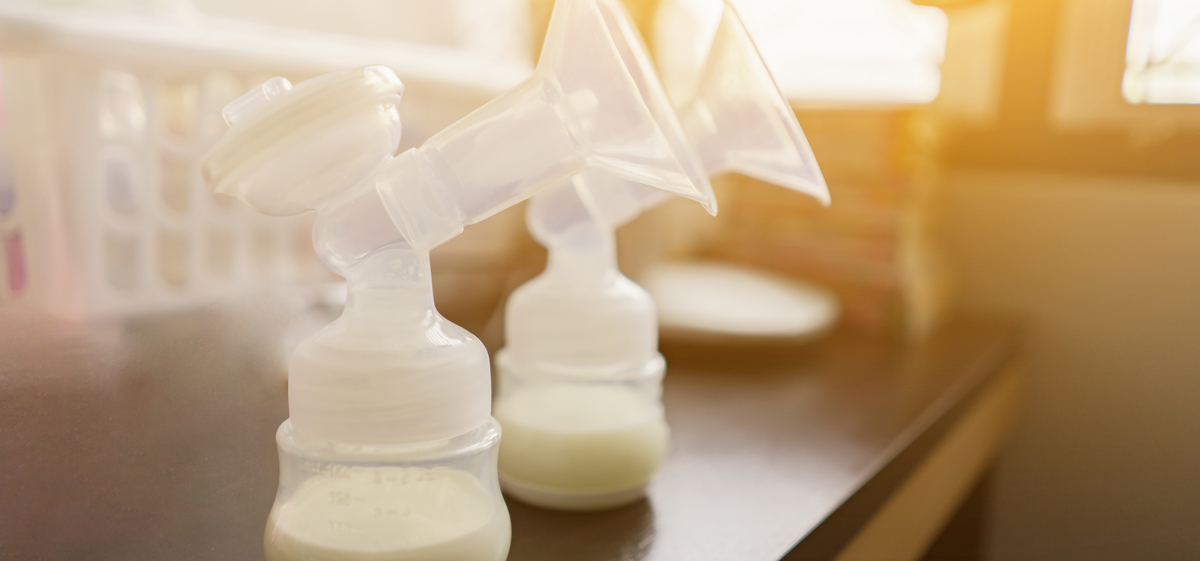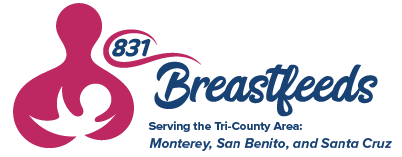
This Information is from the Centers for Disease Control website; Click here for this information in Spanish.
There are many reasons you might want to pump, hand express breast milk, or feed your baby pumped breast milk. Having expressed breast milk can allow your baby to drink your breast milk from with another feeding method, including a syringe, spoon, cup, or bottle.
When to Start Pumping
If you are planning to return to work or school or will be away from your baby for other reasons, you may want to start pumping a few weeks beforehand. This will give you the chance to practice pumping and will give your baby time to get used to feeding from a bottle.
How Often to Pump
When away from your baby or if you are exclusively pumping to feed your baby, try to pump as often as your baby is drinking breast milk. This will help remind your body to keep making the amount of milk your baby needs.
How Much to Pump
Pumping as often as your baby normally drinks breast milk should help your body make about the amount of milk your baby needs. This amount may differ from baby to baby and can change as babies grow. If you find that you are not able to pump as much milk as your baby wants to eat while you are away, you may want to consider adding another pumping session to increase your milk supply.
How to Keep Your Pump Clean
Keeping the parts of your pump clean is very important. For information on how to keep your pump parts clean before and after use, visit How to Keep Your Breast Pump Kit Clean: The Essentials.
How to Make Pumping Work for You
There are many different types of breast pumps on the market and factors to consider when choosing the best pump for your situation. Talk with a breastfeeding specialist for tips on how to help make pumping work for you.
How to Safely Store and Handle Your Breast Milk
By following safe preparation and storage techniques, you can maintain the high quality of expressed breast milk and the health of your baby. For answers to questions on how to prepare and store breast milk, such as where to store breast milk at work, and what to do when the power goes out, visit CDC’s Storage and Preparation of Breast Milk Frequently Asked Questions.
Did You Know?
Hand expression is one way to express milk if your breasts are feeling extra full, if you do not have access to a manual or electric breast pump, if you are unexpectedly separated from your baby, or if you want to make more milk. It is good for all mothers to know how to do this.
To hand express, you use your hand to massage and compress your breast to remove milk. While it takes practice, skill, and coordination, it gets easier over time.
Here is a link to a video from Stanford that shows how to hand express: Hand Expression
Additional Resources for Pumping and Storage of Breast Milk
Pumping and Storage of Breastmilk - CDC
Safe Storage of Breastmilk - CDC
How to Keep Your Pumping Equipment Clean - CDC
Pumping and Storing Breastmilk – Office of Women’s Health
Expressing and Pumping Milk – USDA WIC
Information for Exclusive Pumpers
Exclusive Pumping - Kellymom.com
Exclusively Expressing Breastmilk for Your Baby - La Leche League UK
Note: Resources for obtaining a breast pump from WIC or through your health insurance can be found on the Breast Pumps and Insurance page of this website.
